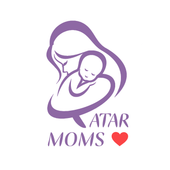From the very first moment of pregnancy, a woman’s body undergoes a series of significant changes. These changes affect various physiological systems and are often accompanied by psychological shifts that influence emotions and outward appearance. While every pregnancy journey is unique, these transformations are a natural and beautiful part of motherhood, filled with hope and joy.
To truly understand pregnancy changes, let’s begin by exploring the emotional experiences women often face early on. Keep reading to learn more,
When Do Pregnancy Changes Begin?
While some visible changes—like the “pregnancy glow” or slight swelling of the face—often appear during the second trimester, a woman’s body actually begins transforming from the very first weeks. Early on, a series of physical and hormonal changes are set in motion to prepare the body for this extraordinary journey, making pregnancy a transformative experience from the very start.
Pregnancy Changes: Early Signs and Feelings
Alongside the physical changes, many women go through complex emotional experiences, including:
- Mixed feelings of happiness and anxiety.
- Increased emotional sensitivity.
- A desire for solitude or, conversely, a need for social connection.
As these feelings unfold, physical features also begin to shift gradually, especially with the physiological changes visible on the face and body.
Changes at the Beginning of Pregnancy
During early pregnancy, women experience clear changes that help the body adjust to this new stage, including:
- Missed Menstrual Period: One of the earliest signs of pregnancy, caused by the cessation of ovulation due to rising progesterone levels.
- Fatigue and Exhaustion: Common in the first weeks, linked to increased progesterone and altered sleep patterns.
- Morning Sickness: Nausea can occur at any time of day, caused by elevated levels of the pregnancy hormone (HCG).
- Changes in Appetite and Sensitivity to Smells: Sudden cravings or aversions to certain foods and scents are typical.
- Breast Tenderness and Sensitivity: Usually begins around the fourth week, due to hormonal shifts.
Behind these visible changes lies a surge of hormones affecting not just the body but also mood and behavior.
Hormonal Changes During Pregnancy
Hormones play a central role in pregnancy and are responsible for many physical and emotional symptoms. Here are the main hormonal changes:
1. Human Chorionic Gonadotropin (HCG)
- Role: Maintains the corpus luteum to continue progesterone production.
- Timing: Rises from week 1, peaking around week 10.
- Symptoms: Nausea, frequent urination, fatigue.
- Gender Differences: Some studies suggest higher levels in pregnancies with female fetuses, possibly explaining stronger nausea.
2. Progesterone
- Role: Stabilizes the uterine lining and relaxes muscles.
- Symptoms: Fatigue, constipation, mood swings, increased body temperature.
- Timing: Gradually increases from early pregnancy onwards.
- Gender Differences: No clear scientific difference between carrying a boy or girl.
3. Estrogen
- Role: Supports uterine and breast growth, improves blood flow.
- Symptoms: Nausea, skin changes, breast tenderness.
- Timing: Rises early and peaks in the third trimester.
- Gender Differences: Slightly higher in pregnancies with female fetuses.
4. Prolactin
- Role: Prepares breasts for milk production.
- Symptoms: Breast enlargement, slight milk leakage in the third trimester.
- Timing: Increases from the second trimester.
5. Relaxin
- Role: Loosens ligaments and joints in preparation for birth.
- Symptoms: Lower back pain, pelvic looseness.
- Timing: Rises early and continues until delivery.
These hormonal shifts also deeply influence a woman’s psychological state
How Do Hormonal Changes Affect a Pregnant Woman’s Mood?
From early pregnancy, female hormones like estrogen, progesterone, HCG, prolactin, and oxytocin rise sharply. This sudden hormonal imbalance directly impacts brain chemistry, causing noticeable changes in mood and behavior. Common emotional effects include:
- Sudden mood swings: rapid shifts from joy to sadness or anxiety without clear triggers.
- Excessive worry and stress: especially about the baby’s health or upcoming responsibilities.
- Unexplained crying spells: heightened emotional sensitivity means even small events can trigger tears.
- Irritability and nervousness: due to physical and emotional stress.
- Social withdrawal or desire for isolation: common with mental fatigue or mild depression.
- Excessive happiness and optimism: sometimes emotions swing to the opposite extreme.
These psychological symptoms typically appear during the first trimester, ease somewhat in the second, and may reappear near the third trimester due to anticipation and anxiety about childbirth.
Do These Emotional Changes Differ by Baby’s Gender?
No definitive scientific evidence confirms different emotional effects based on the baby’s sex. However, some women report personal observations such as:
- Carrying a boy: feeling more stressed or irritable.
- Carrying a girl: experiencing more emotional sensitivity or crying.
These are individual experiences possibly influenced more by culture or psychology than biology.
The Importance of Psychological Support
Providing ongoing emotional and social support from family and partners is vital. Relaxation techniques like deep breathing, gentle walking, and meditation can help, and consulting a mental health professional may be necessary if symptoms severely affect daily life.
Pregnancy Changes in the Skin
Pregnancy also brings noticeable changes to the skin due to hormonal and physical shifts, including:
- Melasma and Dark Spots: Commonly appear on the forehead and cheeks due to increased melanin production, which darkens with sun exposure.
- Increased Oil Production: Leads to shinier skin and sometimes acne, especially in the first trimester.
- Dry Skin: Some women experience dryness, especially in colder weather or when not drinking enough water, requiring extra hydration.
- Pregnancy Glow: Caused by increased blood flow and blood volume, giving the skin a radiant, healthy appearance.
Understanding these pregnancy changes is the first step toward supporting women physically and emotionally throughout this special time. Pregnancy is more than just visible changes, it’s a profound transformation of body and mind.
Start your motherhood journey with confidence and comfort
From the very first moment of pregnancy, your body and emotions go through natural changes. We’re here to support you every step of the way.
At Qatar Moms store, discover essential Pregnancy Products like Maternity Pillows, Morning Sickness Relief, and Breast Care Tools. Plus, explore our Gender Bliss section to find fun and unique ways to learn your baby’s gender.
Shop now to make your pregnancy more comfortable and joyful!
 FREE DELIVERY FOR ORDERS ABOVE 100 QAR
FREE DELIVERY FOR ORDERS ABOVE 100 QAR DELIVERY WITHIN 3 HOURS
DELIVERY WITHIN 3 HOURS APPLE PAY AND CARD PAYMENT AVAILABLE
APPLE PAY AND CARD PAYMENT AVAILABLE



